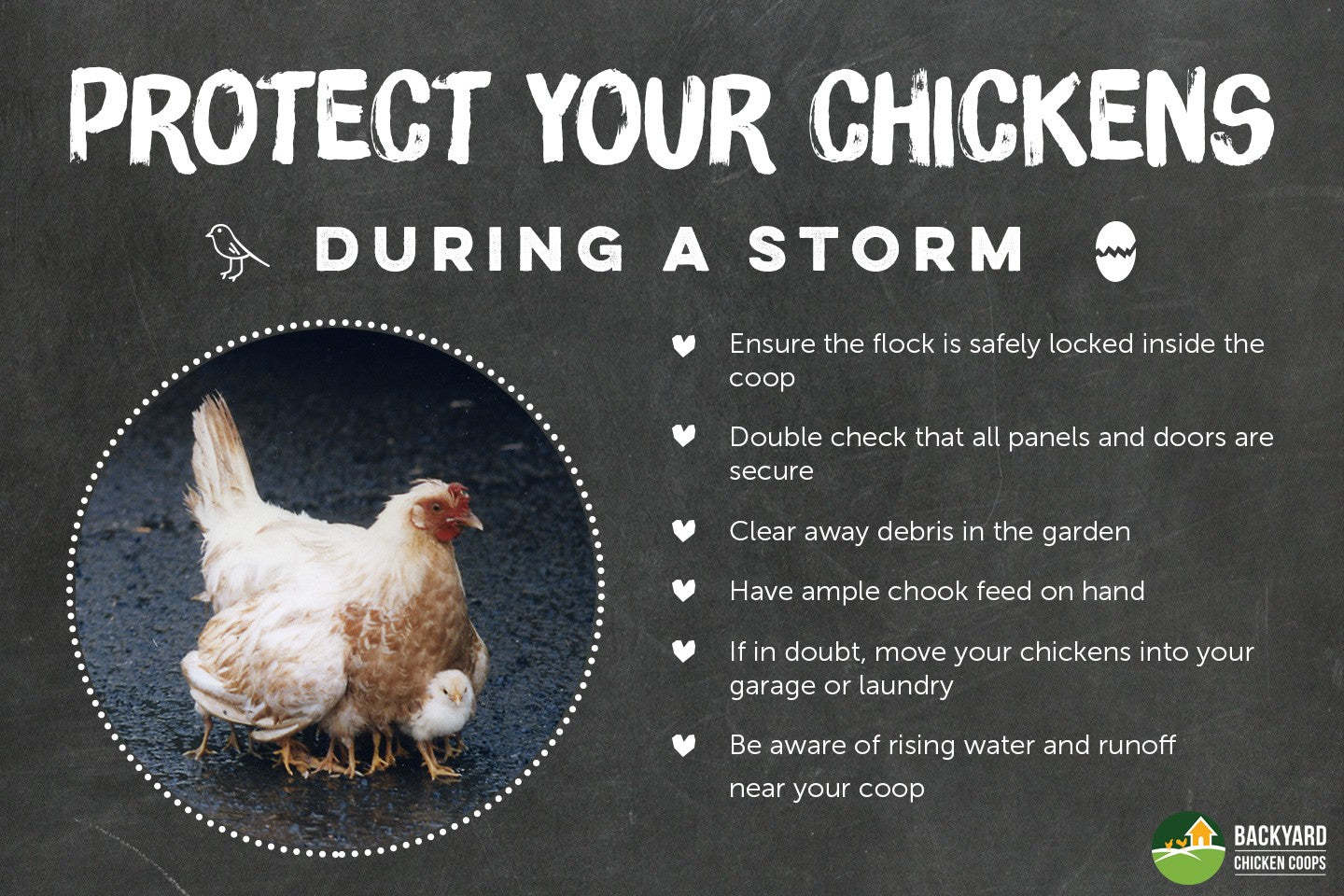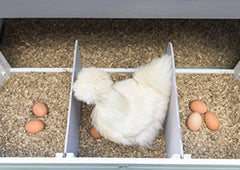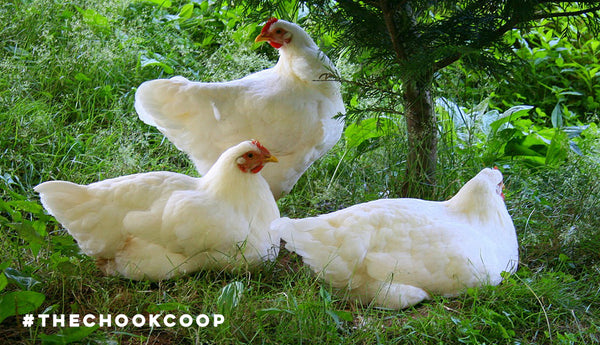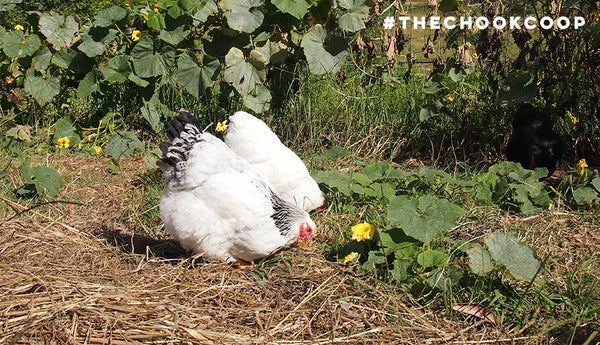A million and one things start to buzz through your brain after a storm warning is announced; thoughts for you partner, your children and of course your own safety. It is stressful, however, for some of us, it’s only at the last moment we think, “WHAT ABOUT THE CHICKENS?!”. The fact that many of us sometimes forget about our chooks in the early stages of severe storm is actually quite normal. Though there is no doubt that you’re truly, madly and deeply in love with your flock, our lives are often quite full and complicated, so it’s only natural that many of us may not immediately think about the chooks when the pressure gets turned up. This being said, when your thoughts suddenly turn to your chicks it’s important that you know what to do and how best to protect them. This article will provide you with clear and realistic measures you can take to help protect your chickens when a storm comes to town.
Assess The Danger
Make sure you check out the local warnings and assess the danger in your area. Depending on what is headed your way, it is important to decide if you are going to relocate your flock. Some people wisely move their chickens inside, to a garage or bathroom, whilst other people for various reasons decide it is still safe for their chooks to remain in the coop. In terms of the safety of your chickens this is possibly the most important decision. Once you've chosen between these two courses of action, it’s time to put your plans into motion and begin storm preparations- chicken style.
Preparation Is Everything
To speak bluntly, when a severe storm hits there isn't much you can do except stay indoors and wait it out. That’s why it is essential that you take every precaution and prepare for the worst, prior to the onset of the storm. Here is a brief list of things that you can do to prepare your poultry for a storm:
Everyone with chickens should:
-
Have a full contact list of important numbers at the ready: Vet, RSPCA, City Council, as well as friends or family who may be able to accommodate your chickens if need be.
-
Arrange the equipment you may need: such as a tarp, hammer, nails, flash lights, rope, radio and so on.
-
In the event roads or power is down for some time it is important that you have extra chicken feed at the the ready, safely stowed away in a high and dry place.
If you are relocating your chickens inside:
-
Clear a room for your chickens and lay down a tarp. Anywhere with a concrete or tiled surface would be best, like a garage, bathroom or laundry.
-
Lay out your waterers and feeders like you normally would- your chickens might like a bite to eat while they nervously wait out the storm.
-
Make sure your chickens are secure in the room, as they may panic and try to escape. Make sure windows and doors are tightly closed.
If you are leaving your chickens in the coop:
-
Ensure that your coop is structurally sound and made from strong materials, like The Penthouse, which is made from kiln dried wood and weighs approximately 88kg.
-
Clear away any surrounding branches that may become projectiles throughout the course of the storm.
-
Tidy up the exposed run and make sure anything that could become hazardous, like waterers, feeders and other accessories are stowed away. It’s best that your chickens do still have a supply of food and water inside the safety of the hutch. If possible, secure the waterer and feeder so that it isn’t knocked over during the wild weather.
-
Make sure you securely close all doors, windows and entries into the coop, with your chickens safe inside the hutch.
-
Also, double check that all panels on the coop are secure and in place, otherwise you may need to nail them down, as it is possible they could become hazards for your chickens.
Once The Storm Has Passed
Be cautious before you step out of your house once you believe the storm has passed. Double check with the authorities via the internet or radio to ensure that it is safe the leave the house. The things you will need to be vigilant of after a storm are many and varied:
-
Administer any first aid to any of the chickens that may have been injured during the storm.
-
Ensure that all animals are fed and hydrated.
-
Clear any hazards that may have blown into your yard during the storm: branches, broken tiles and so on.
-
Be mindful of the threat of displaced wildlife, like foxes, that can become predators to your chickens.
-
Beware of puddles that can breed bacteria. Make sure your flock has plenty of fresh water to drink and when possible eliminate puddles by filling them in with hay, sand, soil and whatever else you can think of.
-
Be aware that after wet weather bug, insect and mite infestations may occur. Keep an eye on your chickens and make sure you clean the coop out with a natural cleaner.
-
Only move your chickens back into the coop if it is secure and safe. If the coop is damaged and no longer secure it is in your chickens’ best interest to remain inside the house or another enclosure until this can be repaired.
Severe storms are stressful times and that is why it is imperative that everyone has a plan, not just for themselves, but for their chickens as well. Though most of us are able to weather severe storms without damage to ourselves, our loved ones and our property, it is nevertheless essential that you take every precaution to avoid heartache.
One of the best precautions you can make is to ensure that your chickens live in a strong, sturdy and secure coop, like the Taj Mahal, Penthouse and Mansion. Though there are no guarantees when it comes to the most severe storms, these coops will be able to weather some of the more extreme conditions.



















